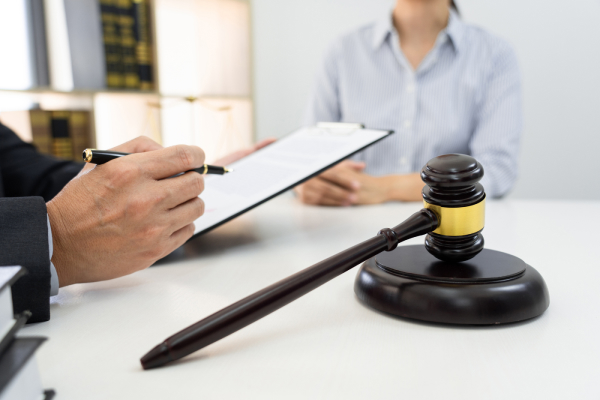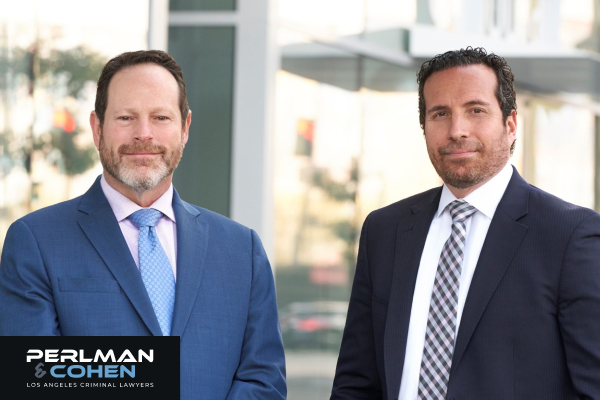
When facing assault charges, having a skilled criminal defense lawyer by your side is crucial.
These legal professionals are familiar with the complexities of criminal law and can navigate the criminal justice system effectively. They provide vital support, guidance, and representation to defend your rights and ensure a fair trial.
Perlman & Cohen Los Angeles Criminal Lawyers specialize in assault cases and are committed to achieving the best outcomes for our clients.
A criminal defense lawyer's role involves everything from legal advice to courtroom representation. They start by thoroughly evaluating your case, identifying potential defenses, and planning a strategic response. Their expertise can make a meaningful difference in the result of your case, possibly reducing or even dismissing the charges.
Trusting your defense to an experienced lawyer can help mitigate the stressful impacts of facing heavy criminal charges.
In legal terms, assault is an attempt or threat to inflict injury on another person with an apparent ability to do so. It is important to note that actual physical contact is not required to occur for an action to be considered assault.
The mere intention and capability to cause harm can qualify as an assault under the law. This broad definition encompasses various behaviors and situations, making legal guidance essential.
A deep knowledge of assault is key to preparing a defense, as the specifics can vary widely from one case to another.
Factors such as the threat's severity, the incident's context, and the presence of any weapons can all influence the classification and severity of the charge.
Legal experts in assault cases can dissect these nuances to build a strong defense. They must interpret how the law applies to your situation and represent your interests accordingly.

A criminal defense lawyer provides critical support from the moment you face charges. They are your advocate, protecting your rights throughout the legal process. Their criminal law and procedure knowledge allows them to challenge the prosecution's case effectively.
A defense attorney's primary goal is to achieve the best possible outcome for you, whether through dismissal, acquittal, or reduced charges.
The first step in your defense is a detailed consultation and case evaluation.
During this meeting, your lawyer will gather all relevant information about the incident and formulate a defense strategy. They assess the strengths and weaknesses of your case and explain your legal options. This initial evaluation is critical in setting the direction for your defense.
Developing a strong defense strategy is where your attorney's expertise truly shines. They consider all available evidence, identify legal precedents, and craft arguments that support your case.
Each strategy is unique to your situation, taking into account the charges, the prosecution's evidence, and any potential legal defenses.
Your lawyer represents you in all court proceedings, from arraignments to trials. They speak on your behalf, cross-examine prosecution witnesses, and present your case to the judge and jury.
Effective courtroom representation is necessary for a successful defense, as it influences how the judge and jury perceive your case.

Building a defense in assault cases requires a thorough understanding of the facts and the law. Your criminal defense attorney will tailor a defense strategy based on the specifics of your case.
One common defense is claiming self-defense or defense of others. This argument is valid if you believe that you or another person were in imminent danger of harm and that the force used was necessary to prevent that harm.
It's important to show that the response was proportional to the threat. Evidence such as witness statements or surveillance video can substantiate a self-defense claim.
Another defense strategy is to argue that there was no intent to cause harm or that any harm caused was accidental. In assault cases, intent can be a key element that the prosecution needs to prove.
If your attorney can demonstrate that the actions were not deliberate or intended to cause harm, this can weaken the prosecution's case.
False accusations and mistaken identity are not uncommon in assault cases. Your defense lawyer will investigate the credibility of witnesses and the accuracy of their statements. They might also use alibi evidence or other forms of proof to demonstrate that you could not have committed the assault.
A critical part of your defense will be challenging the evidence and testimonies presented by the prosecution. This includes questioning the reliability of witness statements, the legality of how evidence was obtained, and the integrity of physical evidence.
Effective cross-examination and the use of expert witnesses can be key tactics in this strategy.
Your attorney will actively seek to have the charges against you dismissed if there are substantial grounds to do so. This could be due to insufficient evidence, procedural errors, or legal rights violations.
Achieving a dismissal means the charges are dropped, and the case does not proceed to trial.
If dismissal is not possible, your lawyer may negotiate a plea bargain with the prosecutor. This often involves agreeing to plead guilty to a lesser charge in return for a more lenient sentence.
Negotiating a plea can enormously reduce the penalties you face and may also shorten the legal process.
Even if convicted, your lawyer will argue for including mitigating factors at sentencing. These factors could include your background, the circumstances of the offense, and any remorse shown. Presenting these factors effectively can lead to reduced penalties.

Expungement is a legal process that can clear an assault conviction from your criminal record under certain conditions. This can greatly benefit your future, particularly regarding employment opportunities, as many employers conduct criminal background checks.
Qualifying for expungement typically requires completing your sentence, including any probation, and not committing further offenses.
Record sealing is another option that may be available, which prevents the public from accessing details of your conviction. While the record is not destroyed, sealing it can provide benefits like expungement.
It's important to consult with your attorney to determine eligibility for these options and be aware of the process involved. Our criminal defense lawyers are here to help you.

A criminal case involving assault is a major concern. At Perlman & Cohen, our criminal defense attorneys treat each criminal defendant with the care and compassion they are owed. We believe that everyone is innocent until proven guilty. Our top priority is providing you with the robust defense you deserve.
Contact us today to schedule a free case consultation.